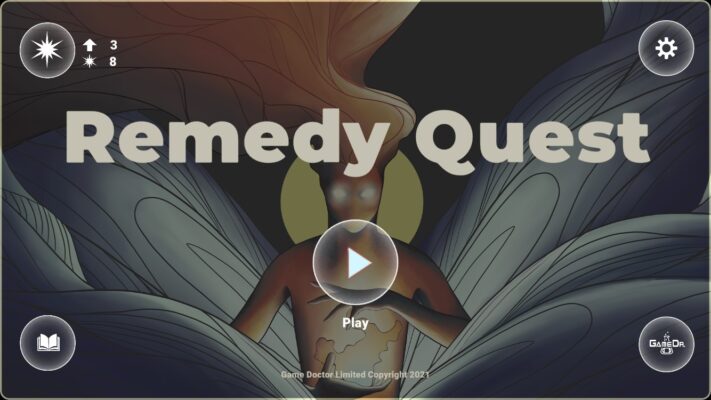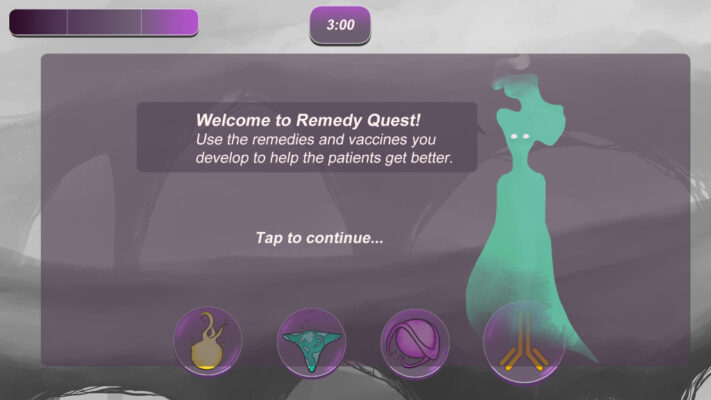The WHO has teamed up with a gaming company to launch a new game called Antidote COVID-19 in which players have to defend against a dangerous enemy: the SARS-CoV-2 virus.
In the game, players are on a mission to develop vaccines to protect against infection and learn about how to support the human immune system. Antidote is the brainchild of Psyon Games, a Finnish firm that has worked with public health authorities on using games to raise awareness of human papilloma virus (HPV) in schools.
We first spoke to Olli Rundgren, founder of Psyon Games in the summer of 2019 when the company had completed a trial in schools using the game ‘Antidote’. The company had previously been praised by the World Health Organization (WHO) for using serious gaming to raise awareness of antimicrobial resistance.
When the COVID-19 pandemic struck, Psyon quickly adapted Antidote to fight a new foe. When we caught up with Rundgren in March 2020, as the SARS-CoV-2 virus spread rapidly in Europe, he explained the potential impact of games in reaching audiences that might otherwise be turned off by public health messaging.

‘We found this to be a much cheaper way of attracting people to health information than traditional information-based campaigns,’ he told Vaccines Today. ‘It also engages them for more than an hour in a way that we believe is highly interactive compared to health ads.’
Now, in partnership with the WHO, Antidote COVID-19 is being made widely available for free. Download the game
‘Now, more than ever, reaching people with reliable information in their preferred channels is an act of public health and safety,’ says Rundgren. ‘Games are the most engaging and measurable media. We believe that the power of games can contribute heavily to solving this great challenge of our time.’
This was echoed by Andy Pattison, Team Lead, Digital Channels at the WHO. ‘Globally, including in countries where COVID-19 vaccines are widely available, misinformation is hindering vaccine acceptance and broader public health efforts,’ he said. ‘Games like the Antidote can help people digest complex scientific information about the virus while building up their resistance to misinformation on COVID-19 protective measures like masks and vaccines in engaging ways, in the palms of their hands.’
Game Doctor to launch game for young people
Antidote COVID-19 is not the only game aiming to educate people about how to combat infectious diseases. Game Doctor, a Glasgow-based studio, will launch a new version of Remedy Quest on November 29.

The mobile game was developed last year with funding from Innovate UK to target young people (10-16 years) with information on COVID-19 and how to stop it. Players must defeat the virus using different remedies (vaccines, the immune system and medicines). All remedies in the game are inspired by real therapies in clinical trials for COVID-19 treatment.
A pilot version was launched in the UK and US in late 2020, with more than 6,000 unique players trying the game. Data from the pilot showed that Remedy Quest was effective at engaging this demographic on COVID and vaccines, according to Dr Carla Brown, Director of Game Doctor.
Now, having improved the game based on the pilot, an updated version is ready to launch. It includes extra learning modules on vaccines, an interactive quiz and multiple levels to represent different patients. The team aims to attract another 20,000 users with the update, with the long-term goal of working with strategic partners to launch the game globally.

Game Doctor is also working with Dr Pamela Rackow, senior psychology lecturer at the University of Stirling, whose research team will evaluate how effective the game is at educating on vaccines and infections using mixed methods approach. Dr Rackow was a key collaborator for the project and supported the game design and user research in pilot phase.
‘Practicing a health-related behaviour such as hand washing or wearing a mask in a game, can help us understand the consequences of that particular behaviour in real life and can make it easier to integrate it into our routine,’ Dr Rackow said. ‘For young people, using games can be more engaging and motivating and help to bring across the relevance of topics that are more serious such as vaccinations in a fun and light way.’





Andy Yeoman
November 26th, 2021
You may be interested in this published evaluation:
Evaluation of a ‘serious game’ on nursing student knowledge and uptake of influenza vaccination
https://journals.plos.org/plosone/article?id=10.1371/journal.pone.0245389
The game evaluated is here: https://flubeegame.com/
Gary Finnegan
November 29th, 2021
Thanks Andy, very interesting.
Stanley osas iyobor
January 3rd, 2022
I wasn’t to take vaccine